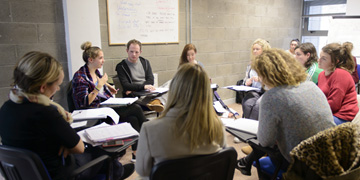Considering Requests
Approvers are required to consider requests in an objective, fair and reasonable manner in accordance with the policy and Criteria & Eligibility Guidelines, which include:
- University needs;
- Student needs;
- Role suitability;
- Employee needs and suitability;
- Designated workspace requirements; and
- The requirements of the WRC Code of Practice (Right to Request Remote Work).
An approver who receives a request must respond as soon as is reasonably practicable, however all requests must be responded to within 4 weeks.
The University has a statutory obligation to comply with the timelines as set out in the Work Life Balance and Miscellaneous Act 2023 and The Code of Practice for Employers and Employees, Right to Request Remote Work (the Code of Practice).


